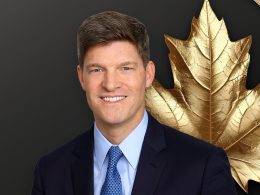by William Smead, CIO, Smead Capital Management
Dear fellow investors,
In the Middle Ages, a common form of punishment was some form of mutilation, which included cutting off the nose of a prisoner or purposefully marring one’s own appearance before the arrival of conquering armies. The term has since been adapted to doing something self-destructive to satisfy a goal or provide retribution. Most of our investors want to understand what has happened with the tariffs proposed to our allies and to our enemies because it seems self-destructive. Why have companies with attractive futures seen their stock prices marred or severely damaged? What does the history of the market say about these circumstances? How should we react as investors?
The Trump administration believes that it must act swiftly and take a wrecking ball to the way international trade has been organized. What they are attacking is David Ricardo’s economic theory that everyone benefits by making what each country makes better than the other countries. Under normal circumstances, the U.S. has been happy to let numerous other countries prosper under very generous trading rules. Post-COVID-19, the current presidential administration believes that the prior system is unsustainable because it has been massively subsidized by U.S. deficit spending. The interest expense and future principal payments look ominous.
Both expensive and glamorous growth stocks are beginning to get marred, as well as those with any economic optimism attached, like our oil stocks and homebuilders. In our opinion, the highly cyclical technology/semiconductor stocks were likely to get severely damaged at some point, regardless of whether President Trump brought out his wrecking ball. As we’ve written before, Charlie Munger called this the biggest financial euphoria episode of his career because of “the totality of it.” We believe that before it is all said and done, the tech sector will end up deeply out of favor as it was in 1990-1991, 2003, and in 2008.
The history of the markets tells us to invest in what Sir John Templeton called “the point of maximum pessimism!” This is not anywhere near the point of maximum pessimism on tech/glamour/growth stocks. They have been drowning in capital for over a decade and aren’t investable until they reach low double-digit multiples of earnings, like they did in the three prior bottoms.
On the other hand, the destructive price declines in the oil business have re-established the scarcity of a necessity set of products that are addictive. The industry has been massively underinvested over the last decade based on a religious movement called ESG (we called it Extra Stupid Growth). Investors wildly piled into massively government-subsidized companies and projects that failed miserably across the board. Simultaneously, we starved the oil business of capital and demonized the industry. It all culminated on April 1, 2020, with Saudi Arabia taking the price of oil to zero and mutilating the oil and gas stocks that spring.
Investors are cutting off their noses to spite their faces. In 2008, the deepest recession year since the Great Depression, Americans used 2% less gasoline than the year before, even though oil prices rose violently. We believe the scarcity of oil will be temporarily exacerbated by the President’s wrecking ball, and his temporary victory on lower oil prices will dry up any urge on the part of producers to poke holes in the ground. It could lead to oil prices as high as those seen during the Russian invasion of Ukraine in 2022 ($123 per barrel).
We assume that the current administration has decided to get all the most difficult things they want to do out of the way early in their four-year term. Therefore, we could well be at or near the point of maximum pessimism in companies that require some economic optimism.
Play The Long Game,

William Smead
The information contained in this missive represents Smead Capital Management’s opinions, and should not be construed as personalized or individualized investment advice and are subject to change. Past performance is no guarantee of future results. Bill Smead, CIO, wrote this article. It should not be assumed that investing in any securities mentioned above will or will not be profitable. Portfolio composition is subject to change at any time and references to specific securities, industries and sectors in this letter are not recommendations to purchase or sell any particular security. Current and future portfolio holdings are subject to risk. In preparing this document, SCM has relied upon and assumed, without independent verification, the accuracy and completeness of all information available from public sources. A list of all recommendations made by Smead Capital Management within the past twelve-month period is available upon request.
©2025 Smead Capital Management, Inc. All rights reserved.
This Missive and others are available at www.smeadcap.com












